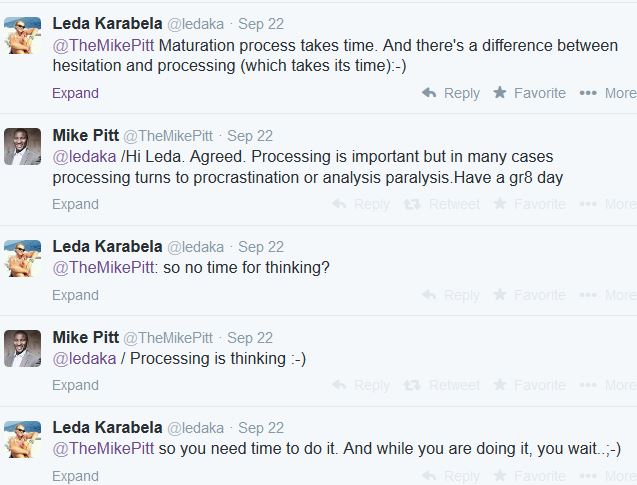 Greeks were loud and clear yesterday. Political ideologies aside, they voted for change.
Greeks were loud and clear yesterday. Political ideologies aside, they voted for change.
The range of emotions is interestingly distended. Elation, fear, excitement, trepidation, anger, disappointment. It’s understandable: It’s a huge change and it will take time to adjust and absorb the transitory loss of balance.
Dodging risks and seeking rewards are prioritized differently by different people. Some of us are less risk averse than others. In my book, I don’t want “to be neither scared stiff by too much novelty and change nor bored by too little.”
Winifred Gallagher’s “New: Understanding Our Need for Novelty and Change” gives some interesting perspective.
“…Like individuals, societies struggle to balance the need to survive, which prioritizes safety and stability, with the desire to thrive, which requires stimulation and exploration. For most of history, this tug-of-war has inclined cultural change, like the biological sort, to occur not in a smooth progression but in an uneven, unpredictable process, of fits and starts that scientists call punctuated equilibrium. Something new, whether climate change, an important tool such as the plow or computer, or a political upheaval, prompts a period of innovation that takes a society to the next level…”
So, while the dizziness from the sleepless election night has not yet faded, manage the fear of the newness. Make sure you give yourself time to think. Try and understand if you’re talking about something you really know something about or if you’re just regurgitating some talking head you heard on the news last night or this morning. Especially that…
 ince I am not a rock-climber I took it figuratively and did my usual imaginary leap. After all, this is the Age of Uncertainty.
ince I am not a rock-climber I took it figuratively and did my usual imaginary leap. After all, this is the Age of Uncertainty. surreal dance. How can they hold onto seemingly nothing at impossibly steep angles? How do they move from those unimaginable positions to other equally unimaginable positions further up the wall? Aside from having a very advanced level of fitness, they have mastered several essential skillsets that allow them to climb in the most effective ways possible. Fine-tuning these skillsets, or techniques, allows them to ascend through a series of moves with optimum efficiency. The utilization of energy in the most efficient manner is the driving principle behind elite climbing technique…”
surreal dance. How can they hold onto seemingly nothing at impossibly steep angles? How do they move from those unimaginable positions to other equally unimaginable positions further up the wall? Aside from having a very advanced level of fitness, they have mastered several essential skillsets that allow them to climb in the most effective ways possible. Fine-tuning these skillsets, or techniques, allows them to ascend through a series of moves with optimum efficiency. The utilization of energy in the most efficient manner is the driving principle behind elite climbing technique…”


 What interests me is helping sharp, intelligently curious people overcome barriers that may be keeping them from achieving more. Passion and boldness can make the art and science of leading easier to navigate. So, have fire; feel with your brain; don't be afraid.
What interests me is helping sharp, intelligently curious people overcome barriers that may be keeping them from achieving more. Passion and boldness can make the art and science of leading easier to navigate. So, have fire; feel with your brain; don't be afraid.
